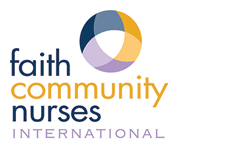Abstract
Abstract
The purpose of this study is to identify current faith community nurse documentation practices, explore factors impacting intention to adopt electronic health records, and identify perceived barriers and benefits to electronic health record use among faith community nurses practicing in the Midwest. The technology acceptance model is used to examine impact of perceived usefulness and perceived ease of use of electronic health records on intention to adopt.
This study is a quantitative exploratory research study utilizing a cross-sectional researcher-developed 39-item questionnaire. Surveys were distributed by mail and e-mail to faith community nurses practicing in South-Central Indiana and Western Kentucky. Survey data was collected from 114 faith community nurses whose nursing educational levels ranged from diploma to PhD for a response rate of 46%.
Descriptive statistics and Pearson’s correlations were used to report study results. Positive correlations were found between both perceived usefulness and perceived ease of use and intention to adopt with a stronger correlation associated with perceived usefulness. Participants reported financial challenges as most significant barriers to electronic health record adoption while the highest rated benefits were associated with record access, enhanced care coordination, and improved ability to identify and communicate FCN practice to decision makers.
This study adds new knowledge on documentation practices and perceptions of faith community nurses related to electronic health records. Understanding the impact of perceived usefulness, ease of use, barriers, and benefits on electronic health record adoption will inform future initiatives seeking to increase faith community nurse electronic health record adoption.
Keywords: faith community nurses, electronic health record, adoption, barriers, facilitators
First Page
18
Included in
Health Information Technology Commons, International and Area Studies Commons, Other Nursing Commons, Public Health and Community Nursing Commons, Religion Commons
